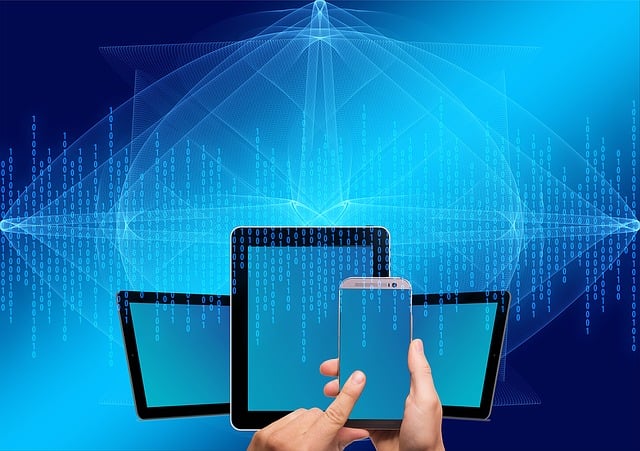Private Internet Access (PIA) is an essential tool for journalists and medical researchers tackling healthcare corruption, enabling anonymized search queries and encrypted connections to protect patient anonymity while analyzing large datasets. This safeguards against surveillance, fosters free inquiry, and facilitates global efforts to expose corruption. For researchers, PIA hides geographic locations, secures data transmission, and prevents identification of study participants or sources. Adopting these practices ensures ethical conduct, maintains confidentiality, and safeguards individuals from potential harm or reprisal in today's interconnected world.
Private Internet Access (PIA) is transforming online security for medical researchers worldwide, ensuring data protection and privacy in an era of increasing digital surveillance. This article explores PIA’s role in safeguarding sensitive medical information, particularly against potential corruption and state-sponsored monitoring. We delve into how anonymizing searches empowers researchers, enabling them to investigate global health issues freely. Additionally, we discuss the ethical considerations and best practices for secure online research, emphasizing the importance of private VPN services in facilitating impactful global health studies.
- The Role of Private Internet Access in Protecting Medical Data
- Anonymizing Searches: A Tool Against Corruption and Surveillance
- Global Reach, Local Impact: Private VPN Services for Researchers
- Ethical Considerations and Best Practices for Secure Online Research
The Role of Private Internet Access in Protecting Medical Data

Private Internet access plays a pivotal role in safeguarding medical data, especially for researchers and journalists investigating sensitive topics like healthcare corruption. In today’s digital age, where vast amounts of patient information are stored online, ensuring data privacy is paramount to maintaining trust and ethical standards. Anonymizing search tools and encrypted connections are instrumental in this process.
When medical researchers or journalists conduct investigations, they often need to access and analyze large datasets without compromising patient anonymity. Private Internet access provides a secure environment where sensitive queries can be executed while protecting the identity of individuals. This is crucial for unearthing corruption, as it allows for a thorough exploration of financial transactions, data sharing practices, and potential conflicts of interest within healthcare institutions—all while preserving the confidentiality of patients and researchers alike.
Anonymizing Searches: A Tool Against Corruption and Surveillance

Anonymizing searches play a pivotal role in safeguarding the privacy and integrity of medical researchers, especially those delving into sensitive topics like corruption within healthcare systems. By employing tools that mask their online identities, researchers can protect themselves from potential surveillance and harassment, fostering an environment conducive to free inquiry. This is particularly crucial for journalists investigating systemic issues such as corruption, where the stakes are high and sources may be reluctant to share information without guarantees of anonymity.
In today’s digital age, where nearly all research and communication occur online, any trace of personal data can expose individuals to risks. Anonymizing search technologies, akin to Private Internet Access, allow researchers to browse the web without leaving detectable footprints, thus enabling them to gather crucial evidence, connect with whistleblowers, and analyze trends without fear of retaliation or identification. This anonymity is not just a shield against surveillance but also a catalyst for unearthing the truth, making it an indispensable tool in the fight against corruption and promoting transparency in medical research globally.
Global Reach, Local Impact: Private VPN Services for Researchers

In today’s interconnected world, medical researchers face a unique set of challenges when conducting their work. One of the most pressing issues is maintaining privacy and anonymity while accessing sensitive data or publishing findings that might expose individuals or spark controversial discussions. For instance, journalists investigating healthcare corruption require robust tools to anonymize their search for sources without fear of reprisal. Private VPN services step in as a solution, offering researchers worldwide a global reach with local impact.
These services enable secure and encrypted connections, allowing researchers to navigate the internet freely while hiding their geographic locations. This anonymity is crucial for protecting vulnerable populations, ensuring data security, and fostering open dialogue without fear of censorship or legal repercussions. With a simple click, a researcher in one country can appear as if they’re working from another, circumventing regional restrictions and opening doors to a wealth of information.
Ethical Considerations and Best Practices for Secure Online Research

In today’s digital era, medical researchers worldwide leverage online resources extensively to gather data and conduct studies. However, this reliance on the internet introduces critical ethical considerations, especially when handling sensitive information. Secure online research necessitates robust measures to protect participants’ privacy and anonymize data to prevent potential identification. Anonymizing search queries is a best practice for journalists investigating corruption or sensitive medical practices; it safeguards sources and ensures that investigative efforts do not compromise individuals’ identities.
To uphold ethical standards, researchers must employ secure communication channels, encrypt data transmission, and use reputable, privacy-focused Virtual Private Networks (VPNs) like Private Internet Access. These tools help in masking IP addresses, rendering it nearly impossible to trace online activities back to individual users. By adopting such best practices, medical researchers can maintain the integrity of their work while upholding principles of confidentiality and anonymity, ensuring the protection of both participants and sources alike.
Private Internet Access plays a pivotal role in safeguarding medical researchers worldwide, enabling them to navigate the digital landscape with security and anonymity. By anonymizing searches, these tools deter corruption and surveillance, ensuring that sensitive data remains protected. Global VPN services empower researchers across diverse regions, facilitating local impact while adhering to ethical considerations. Embracing best practices for secure online research is essential to harness the full potential of Private Internet Access, fostering a robust and responsible global knowledge-sharing environment.
